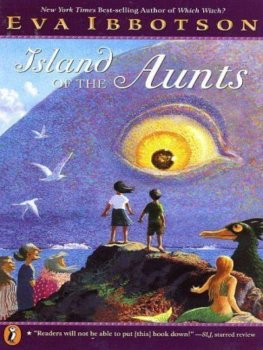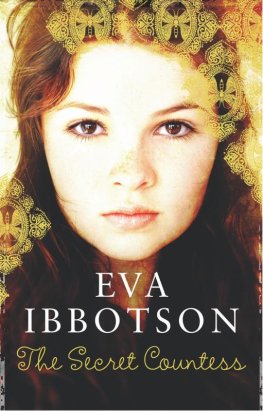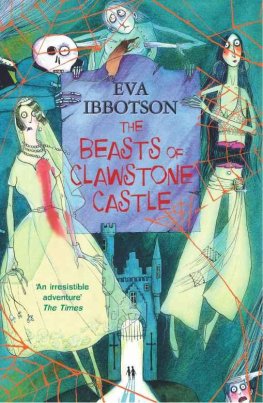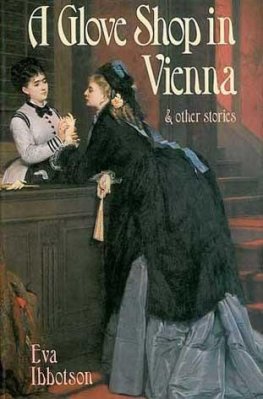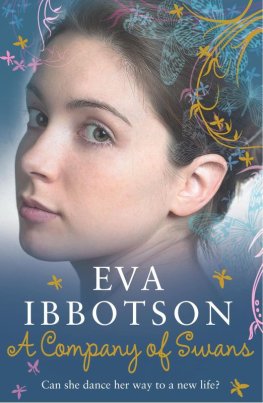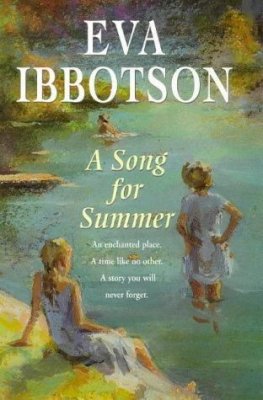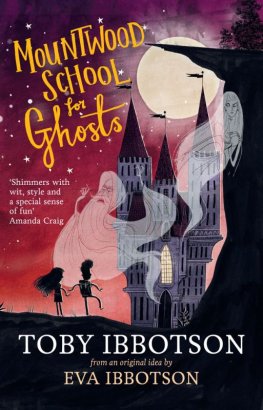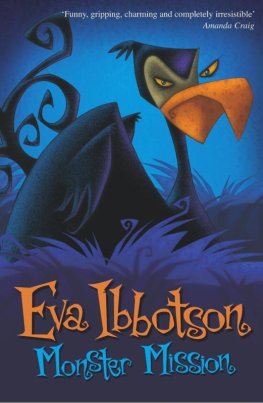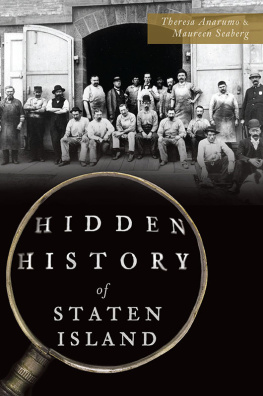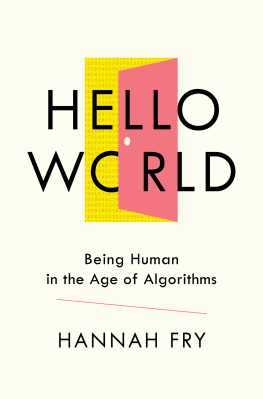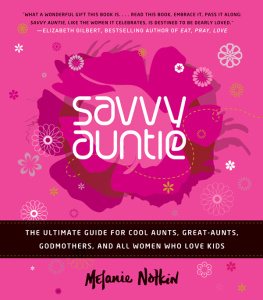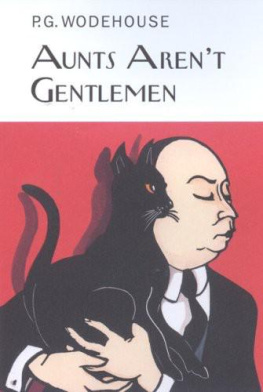Eva Ibbotson - Island of the Aunts
Here you can read online Eva Ibbotson - Island of the Aunts full text of the book (entire story) in english for free. Download pdf and epub, get meaning, cover and reviews about this ebook. year: 1999, publisher: Kindle, genre: History. Description of the work, (preface) as well as reviews are available. Best literature library LitArk.com created for fans of good reading and offers a wide selection of genres:
Romance novel
Science fiction
Adventure
Detective
Science
History
Home and family
Prose
Art
Politics
Computer
Non-fiction
Religion
Business
Children
Humor
Choose a favorite category and find really read worthwhile books. Enjoy immersion in the world of imagination, feel the emotions of the characters or learn something new for yourself, make an fascinating discovery.
- Book:Island of the Aunts
- Author:
- Publisher:Kindle
- Genre:
- Year:1999
- Rating:4 / 5
- Favourites:Add to favourites
- Your mark:
- 80
- 1
- 2
- 3
- 4
- 5
Island of the Aunts: summary, description and annotation
We offer to read an annotation, description, summary or preface (depends on what the author of the book "Island of the Aunts" wrote himself). If you haven't found the necessary information about the book — write in the comments, we will try to find it.
Island of the Aunts — read online for free the complete book (whole text) full work
Below is the text of the book, divided by pages. System saving the place of the last page read, allows you to conveniently read the book "Island of the Aunts" online for free, without having to search again every time where you left off. Put a bookmark, and you can go to the page where you finished reading at any time.
Font size:
Interval:
Bookmark:
Island of The Aunts
by
Eva Ibbotson
Chapter 1
Kidnapping children is not a good idea. All the same, sometimes it has to be done.
Aunt Etta and Aunt Coral and Aunt Myrtle were not natural kidnappers. For one thing, they were getting old and kidnapping is hard work; for another, though they looked a little odd, they were very caring people. They cared for their ancient father and for their shrivelled cousin Sybil who lived in a cave and tried to foretell the future and most particularly they cared for the animals on the island on which they lived, many of which were quite unusual.
Some of the creatures that made their way to the Island had come far across the ocean to be looked after, and lately the aunts had felt that they could not go on much longer without help. And help didnt mean grown-ups who were set in their ways. Help meant children who were young and strong and willing to learn.
So on a cool blustery day in April the three aunts gathered round the kitchen table and decided to go ahead. Some children had to be found and they had to be brought to the island, and kidnapping seemed the only sensible way to do it.
That way we can choose the ones that are suitable, said Aunt Etta. She was the eldest; a tall, bony woman who did fifty press-ups before breakfast and had a small but not at all unpleasant moustache on her upper lip.
The others looked out of the window at the soft green turf, the sparkling sea, and sighed, thinking of what had to be done. The sleeping powders, the drugged hamburgers, the bags and sacks and cello cases they would need to carry the children away in
Will they scream and wriggle, do you suppose? asked Aunt Myrtle, who was the youngest. She suffered from headaches and hated noise.
No, of course not. Theyll be unconscious, said Aunt Etta. Flat out. I dont like it any more than you do, she went on, but you saw the programme on TV last week.
The others nodded. When they first came to the Island they hadnt had any electricity, but after his hundredth birthday their fathers toes had started to turn blue because not enough blood got to his feet and they had ordered a generator so that he could have an electric blanket. After that they thought they might as well have an electric kettle, and then a TV.
But the TV had been a mistake because of the nature programmes. Nature programmes always end badly. First you see the hairy-nosed wombats frisking about with their babies and then five minutes before the end you hear that there are only twelve breeding pairs left in the whole of Australia. Or there are pictures of the harlequin frogs of Costa Rica croaking away on their lily leaves and the next minute you are told that theyre doomed because their swamps are being drained. Worst of all are the rainforests. The aunts could never see a programme about the rainforests without crying, and last week there had been a particularly bad one with wicked people burning and slashing the trees, and pictures of the monkeys and the jaguars rushing away in terror.
What if we became extinct? Aunt Coral had wondered, blowing her nose. Not just the wombats and the harlequin frogs and the jaguars, but us.
The others had seen the point at once. If a whole rainforest can become extinct why not three elderly ladies? And if they became extinct what would happen to their work and who would care for the creatures that came to the Island in search of comfort and of care?
There was another thing which bothered the aunts. Lately the animals that came to the Island simply wouldnt go away again. Long after they were healed they stayed on it was almost as if they knew something and that made more and more work for the aunts. There was no doubt about it, help had to be brought in, and quickly.
So now they were deciding what to do.
How do we find the right children? asked Myrtle as she looked longingly out at the point where the seals were resting. One of the seals, Herbert, was her special friend and she would very much rather have been out there playing her cello to him and singing her songs.
We shall become Aunts, said Etta firmly, settling her spectacles on her long nose.
The others looked at her in amazement. But we are aunts, they said. How can we become them?
This was true. There had been five sisters who had come to the Island with their father many years ago. They had found a ruined house and deserted beaches with only the footprints of sandpipers and dunlins on the sand, and barnacle geese resting on the way from Greenland, and the seals, quite unafraid, coming out of the water to have their pups.
They had started to repair the house, and planted a garden, and then one day they had found an oiled seabird washed up on a rockOnly it turned out not to be an oiled seabird. It was oiled all right, but it was something quite different and after that they realized that they had been called to the Island by a Higher Power and that they had found their lifes work.
But one of the sisters, Betty, had not cared for the Island. She hated the wind and the rain and the fish scales in her tea and the eider ducklings nesting in her bedroom slippers and she had gone away and got married to a tax inspector in Newcastle upon Tyne and now she lived in a house with three kinds of toilet freshener in the loo, and sprays to make her armpits smell nice, and not a fish scale in sight.
But the point was that she had two children. They were horrible, but they were children. She called the boy Boo-Boo and the girl Little One (though they had proper names of course). But horrible though they were, they were children and because of this her sisters had become aunts since all you have to do to become an aunt is have nephews and nieces.
Which is why now the sisters looked so surprised and said: But we are aunts.
Not that kind, said Etta impatiently. I mean the kind that live in an office or an agency and call themselves things like Useful Aunts or Universal Aunts or Aunts Inc. the kind that parents pay to take their children to school and to the dentist, or to sit with them when they are ill.
Why dont the parents do it themselves? asked Myrtle.
Because theyre too busy. People used to have real aunts and grandmothers and cousins to do it all, but now families are too small and real aunts go to dances and have boyfriends, said Etta, snorting.
Coral nodded her head. She was the arty one, a large plump person who fed the chickens in a feather boa and interesting jewellery, and at night by the light of the moon she danced the tango.
Its a good idea, she said. You would be able to pick and choose the children you dont want to end up with a Boo-Boo or a Little One.
Yes, but if the parents are truly fond of the children we shouldnt do it, said Myrtle, pushing back her long grey hair.
Well of course not, said Etta. We dont want a hue and cry.
But if the children are nice the parents would be fond of them, said Myrtle. And if they arent we dont want them either.
Etta sniffed. Youd be surprised. There are children all over the place whose parents dont know how lucky they are.
They went on talking for a long time but no one could think of anything better than Ettas plan not if the position of the Island was to be kept secret, and there was nothing more important than that.
There was one more aunt who would have been useful not the one with the three kinds of toilet freshener, who was no use for anything but Aunt Dorothy, who was next in age to Etta and would have been just the sort of person to have on a kidnapping expedition. But Dorothy was in prison in Hong Kong. She had gone out there to stop a restaurant owner from serving pangolin steaks pangolins are beautiful creatures and are getting rare and should never be eaten and Dorothy had got annoyed and hit the restaurant owner on the head with his own wok, and they had put her in prison. She was due out in a month but in the meantime only the three of them could go on the mission and they werent at all sure about Myrtle because she was not very good out in the world and when she was away she always pined for Herbert.
Font size:
Interval:
Bookmark:
Similar books «Island of the Aunts»
Look at similar books to Island of the Aunts. We have selected literature similar in name and meaning in the hope of providing readers with more options to find new, interesting, not yet read works.
Discussion, reviews of the book Island of the Aunts and just readers' own opinions. Leave your comments, write what you think about the work, its meaning or the main characters. Specify what exactly you liked and what you didn't like, and why you think so.

